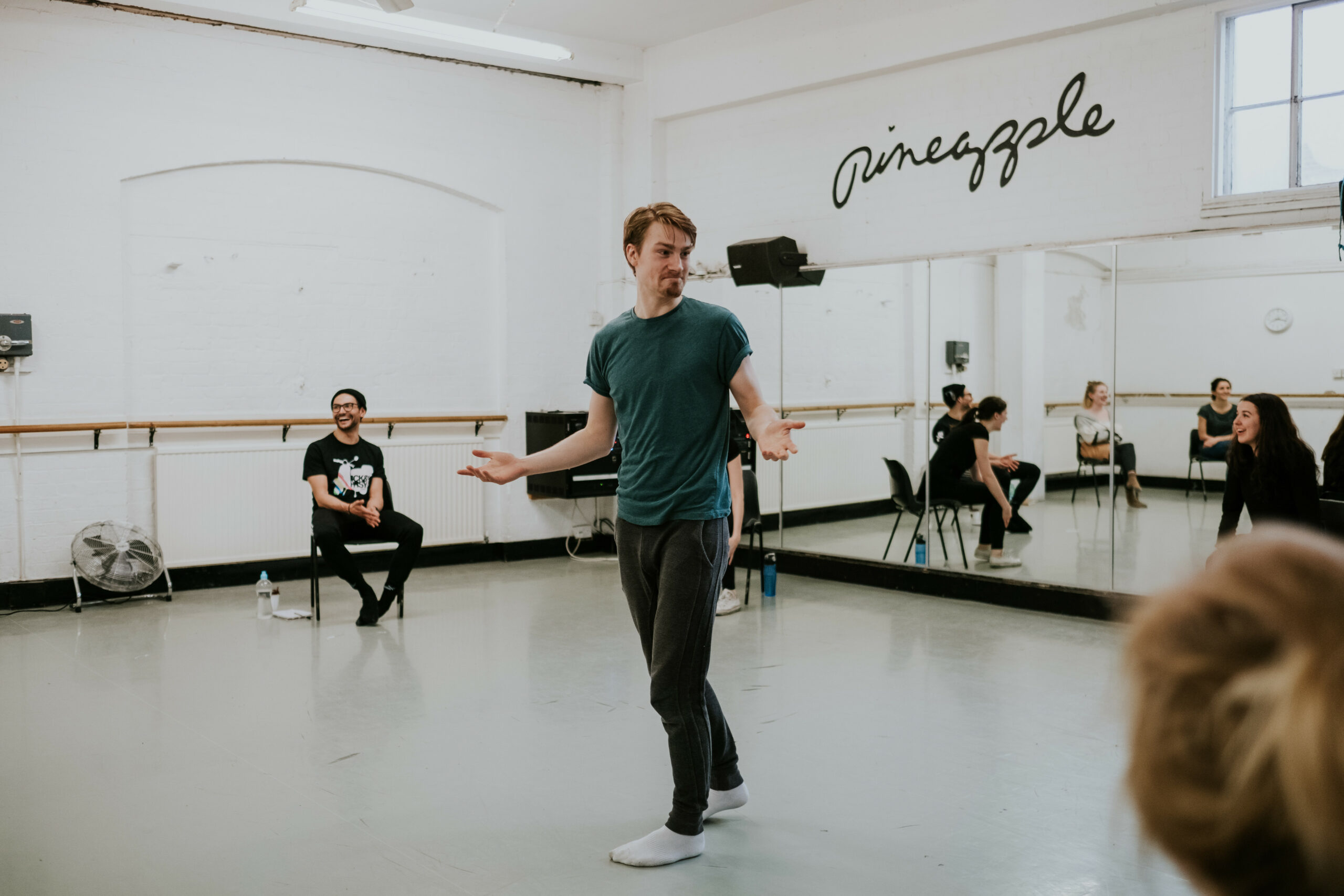Brexit is approaching… Luna Williams of the Immigration Advice Service gives us insight on what we can do now to prepare.
Read our updated guidance on working and auditioning in the EU of you’re a UK National.
Published: October 2018
The easy exchange of talent, experiences and ideas has always been central to the performing arts industry. Free movement has allowed this to be a possibility for centuries – even before Britain was a member of the EU. Aside from one very brief (11 year) stint, the UK has always allowed the freedom of movement for peoples to and from Europe. From a creative standpoint, this has been ideal. Differences in perspective, experience and culture encourage debate and it is this debate which really lets creativity breathe and move.
Free movement has let British performers and creators hone their own crafts. For years, young creatives have ventured to Europe to attend training, meet like-minded people, and be inspired by traditional and contemporary European dramatic practices. Equally, European creatives – actors, dancers, theatre-makers, film-makers – have flocked to the UK for the same reasons. This has lead to some of the richest theatre and film to date.
What We Know
We know that freedom of movement will end on March 29th, 2019. This was confirmed by Theresa May. We also know that, in the event of any deal being made between the UK and the EU, a two-year transitional period – called an ‘implementation phase’ – will be put in place. This period does exactly what is says on the tin. It allows time for Brits and Europeans to gradually transition into post-Brexit life and its policies. European nationals who arrive in the UK before or during this time will have their rights protected, in any case. Along with this, any EU nationals can also choose to settle in the UK permanently during this period. This is a big decision for anyone but may be an option for EU nationals who have long-term jobs and families in Britain.
In the last few months, the government have made it increasingly clear that they are willing to walk away from negotiations without a deal. ‘No deal is better than a bad deal’ is the line. But a ‘no deal’ Brexit would have severe implications for the UK, and certainly for the performing arts.
Potential Consequences
The Confederation of British Industry (CBI) released a report last month, which aimed to convince the government of the impact a ‘no deal’ Brexit would have on several major British industries, pushing for a new ‘open and controlled’ EU immigration system to replace free movement. Included in the list of industries at stake are the Creative and Entertainment industries. According to the report, 131,000 Europeans currently work in the UK’s creative industries.
If the UK were to come crashing out of the EU without a deal on Brexit day, the impact on these individuals could be huge. While the government has assured us that the rights of EU nationals who currently live and work in the UK will not be impacted by Brexit, there is no guarantee of this if no deal is reached by March 29th. If this were to occur, there will be no new policies agreed, and no transition period. This would leave EU citizens who are working as performers in the UK at a sudden loss, possibly unable to secure their statuses or relevant work permits.
The worry here is that this could result in a mass-exodus of EU nationals, either in the run-up to or following on from Brexit. This would cause problems for certain sub-sectors more than others. For example, areas in the UK’s dance industry are already suffering with a talent shortage. The roles Skilled Classical Ballet Dancer and Skilled Contemporary Dancer have been included on the UK’s Shortage Occupation List for over a decade. This list, used as a resource by the British government, identifies any roles which are suffering from a national ‘skills crisis’, meaning they can’t be filled by British talent alone. Of The Royal Ballet’s current principal dancers, only two are British born and 85% are from overseas – with 25% from Europe. The industry needs to keep easy access to the European talent pool to continue to thrive.
This goes both ways. If free movement is not replaced with a new system which allows easy movement, many self-employed British performers, who need to easily attend rehearsals, filming sessions, training or performances in Europe would also be impacted. The creative and entertainment industries were worth £84bn to the UK in 2014 and are growing at twice the rate of the British economy yearly, and should be prioritised in negotiations to avoid negative impacts.
How You Can Prepare
Download the Registration App
The government are currently trialling a smartphone registration app which will let UK-based EU citizens register for ‘settled status’. This is meant to make the process easy, so that the 3.6 million EU nationals living in the UK can secure their positions in the UK ready for Brexit.
The app, which is due to be released by the end of this year, can be used to apply for settled status using the following steps:
- You answer basic questions about your nationality, immigration history and criminal background
- You scan your passport
- You take a photograph of yourself
This scheme is set to be released in time for March 29th, as long as a deal is reached by then.
Look into Permanent Settlement
EU nationals are automatically granted Permanent Residence once they have lived in the UK for five years. Now, many are choosing to get an official document to prove their status before that time as well, called an EEA Residence Card. You can easily apply for this card using a simple form, and the cost of the application is £65 per person.
Many Europeans living in the UK are also choosing to secure their places in time for Brexit by getting a British passport. Having a British passport means that, whatever the outcome of Brexit, you will be able to officially hold on to your rights in the UK.
To get a British passport, you need to have lived in the UK for at least 12 months while holding an EEA Permanent Residence Card. If a Brexit deal is reached, the two-year implementation period can be used to count towards these 12 months. You must also prove you can speak competent English and pass a Life in the UK Test.
Keep up to date with Visa Requirements
The CBI warns against implementing the same harsh visa restrictions which are currently in place for non-European migrants. Under the current Work Visa regulations, anyone who wants to work in the UK must have a sponsored employer and job offer before they can enter the UK. As most performers will know, this isn’t always feasible. Most performers are self-employed and take on jobs when and where they can. Many also take on additional part-time work, with hours which can shift from week to week to compensate for auditions and performance work. None of this would be possible under the current Work Visa regulations.
In spite of this, we should not rule out the possibility of these regulations being put in place for European performers. The current ‘Creative Worker’ requirements under the Temporary Work Visa category are as follows:
- You have an official UK job offer for a set period of 12 months or less (for example, a director has asked you to act in their film project in London, for three months)
- You will be paid the minimum salary as outlined by Equity (unless you are a musician or circus-performer)
- You can prove you have £945 of savings 90 days before you apply
It’s pretty safe to assume that these regulations are unlikely to be put in place for any EU performers currently living and working in the UK before Brexit. However, without a transition period they may affect those who arrive after Brexit day.
Learn about Visitor Visas as an alternative
One way for EU performers to avoid having to meet these strict requirements is through entering Britain under the much more relaxed Visitor Visa route.
To meet the expectations of this route, performers are not able to take on jobs for which they will receive a salary. This may not be ideal for many performers, who are looking to make a living and career in the UK. However, it can be ideal for those who want to visit the UK to network, attend events or get involved with workshops.
As a visiting performer, you are permitted to do the following in the UK:
- Give (non-paid) performances as a solo or group artist
- Take part in competitions and auditions
- Take part in promotional activities or events
- Attend workshops
- Give talks about your work
- Take part in cultural events and permit free festivals
During their time in the UK, a visiting performer cannot be paid a salary, however, they can receive cash prizes for competitions and any reasonable expenses.
One thing to bear in mind is that the current state of negotiations means that exact policies are still up in the air. With no clear deal secured so far, there is a question mark over the status of EU performers and the mobility of British performers. However, what we can be sure about is that diversity has always been essential to Britain’s performing arts. For that reason, as the industry develops and grows, continuing to encourage this is essential.
Luna Williams is a theatre graduate and political correspondent at the Immigration Advice Service, a UK-based organisation which offers specialist immigration, nationality and asylum guidance.



















